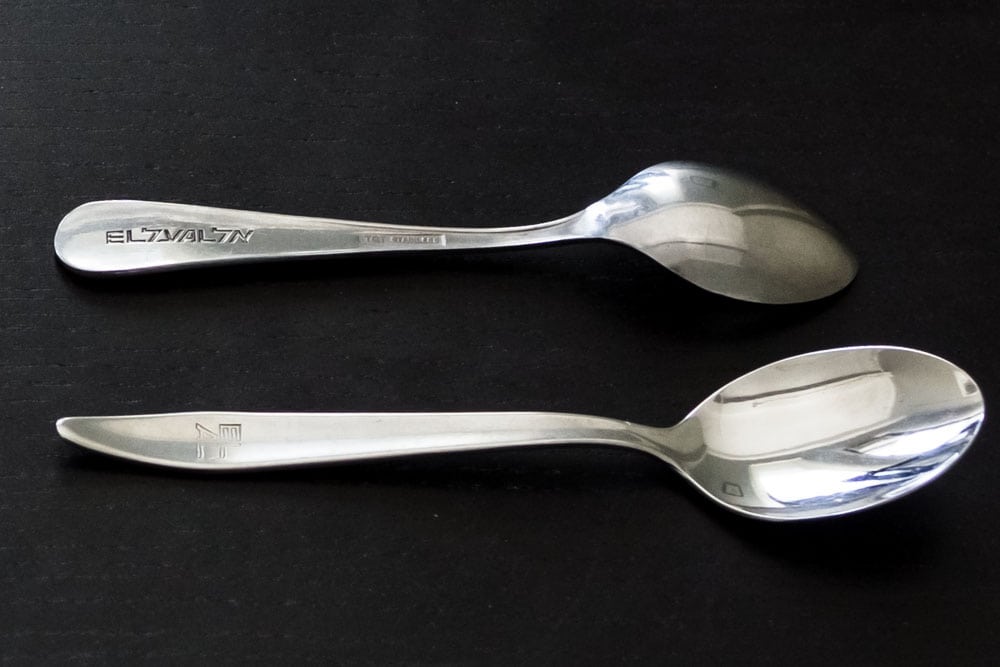A Mini-History of Modern International Aviation as Told in Stolen Spoons

Skift Take
Now that there's been all this consolidation in the airline industry, maybe they'll be profitable enough to afford some meals and silverware in coach. Otherwise, these vintage airline spoons will signal the unappetizing end of an era.
[gallery ids="105450,105456,105459,105461,105462,105460,105445,105458,105447,105443,105448,105449,105451,105452,105453,105454,105455,105457,105463,105464"]
For a journalist covering the travel industry, this was the ultimate scoop: I recently inherited my Dad's vintage collection of airline spoons.
And forks.
More than 80 stainless steel beauties, in all.
My Dad, Frank Schaal, a retired electrician, refugee from Nazi Germany, poet/philosopher, social activist and traveler, died at age 91 in Sarasota, Florida, in early June.
The spoons hung proudly in a glass case on display in my pa

